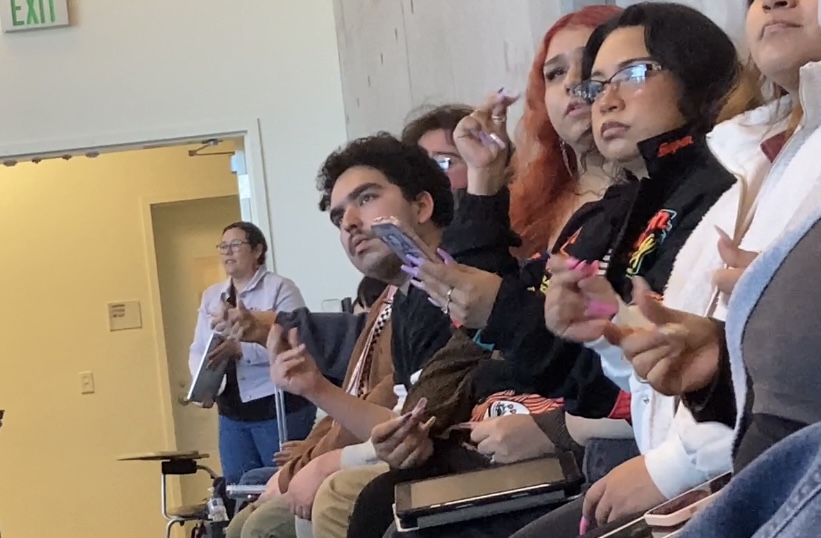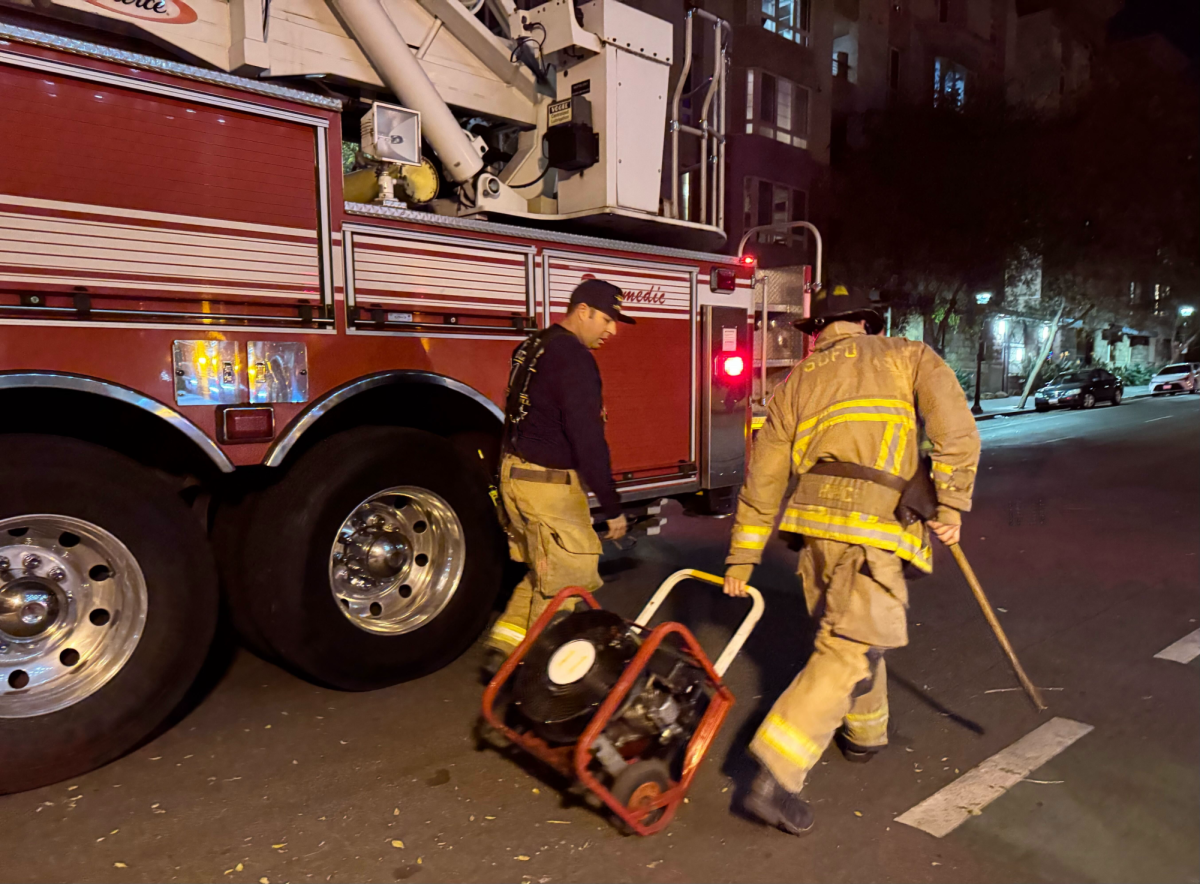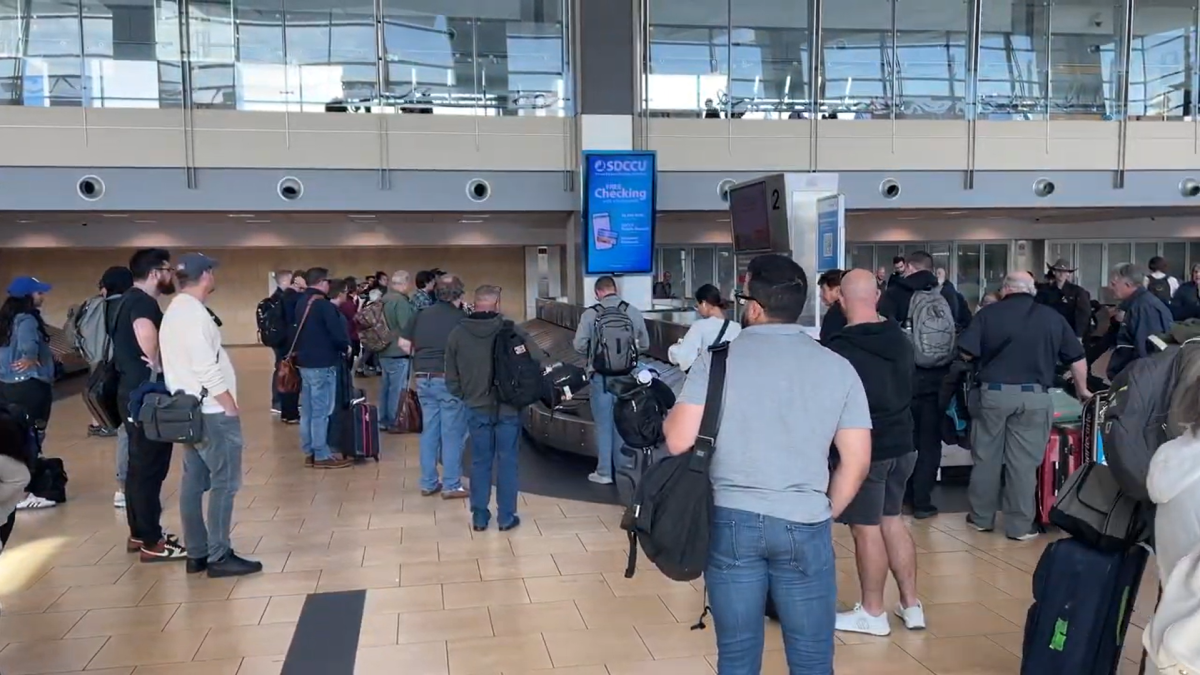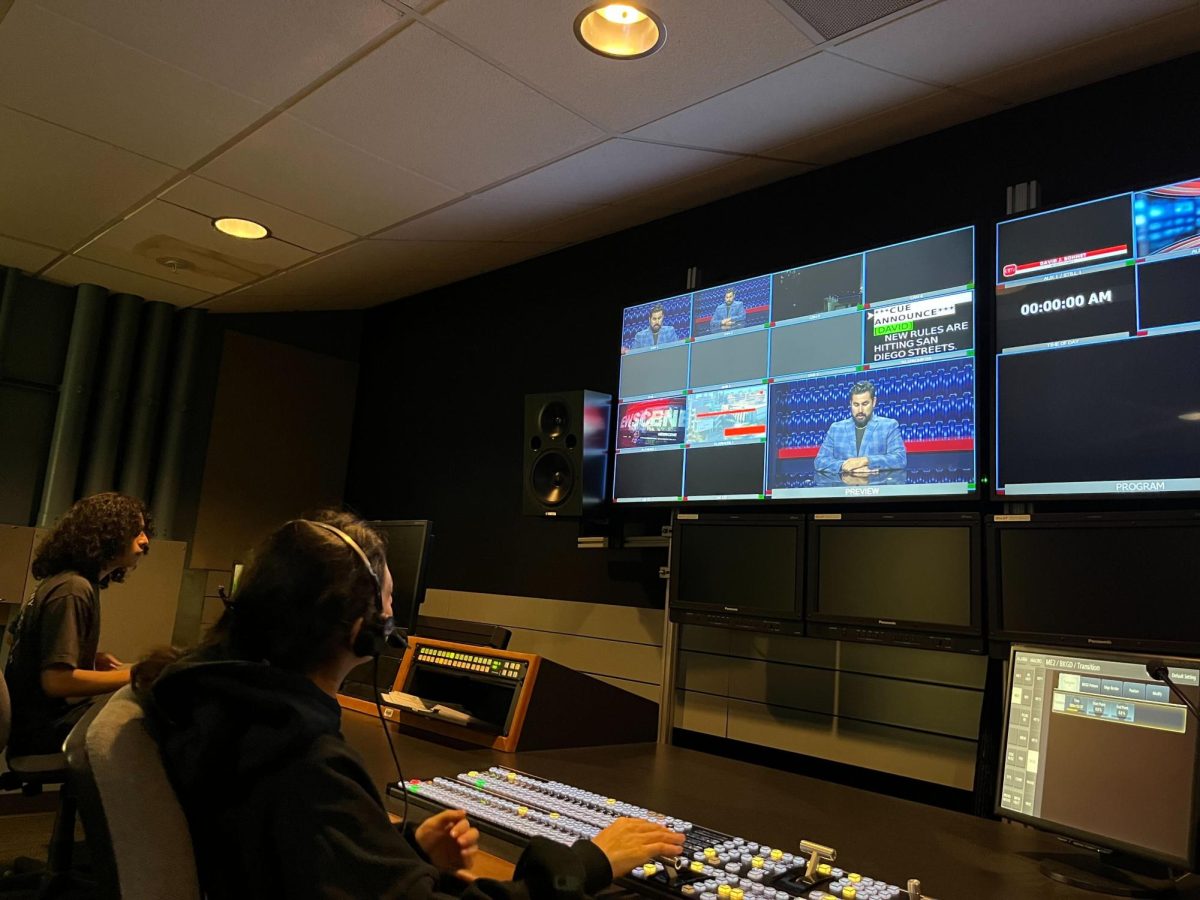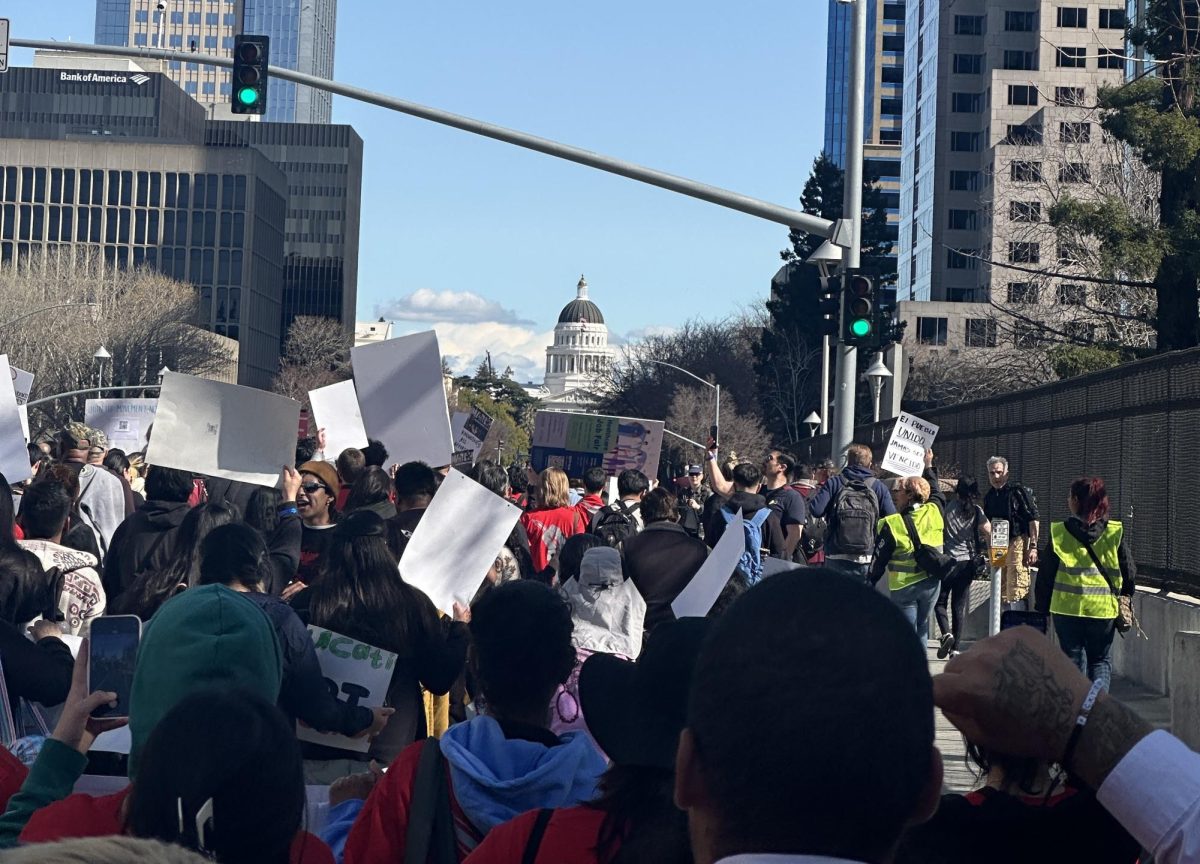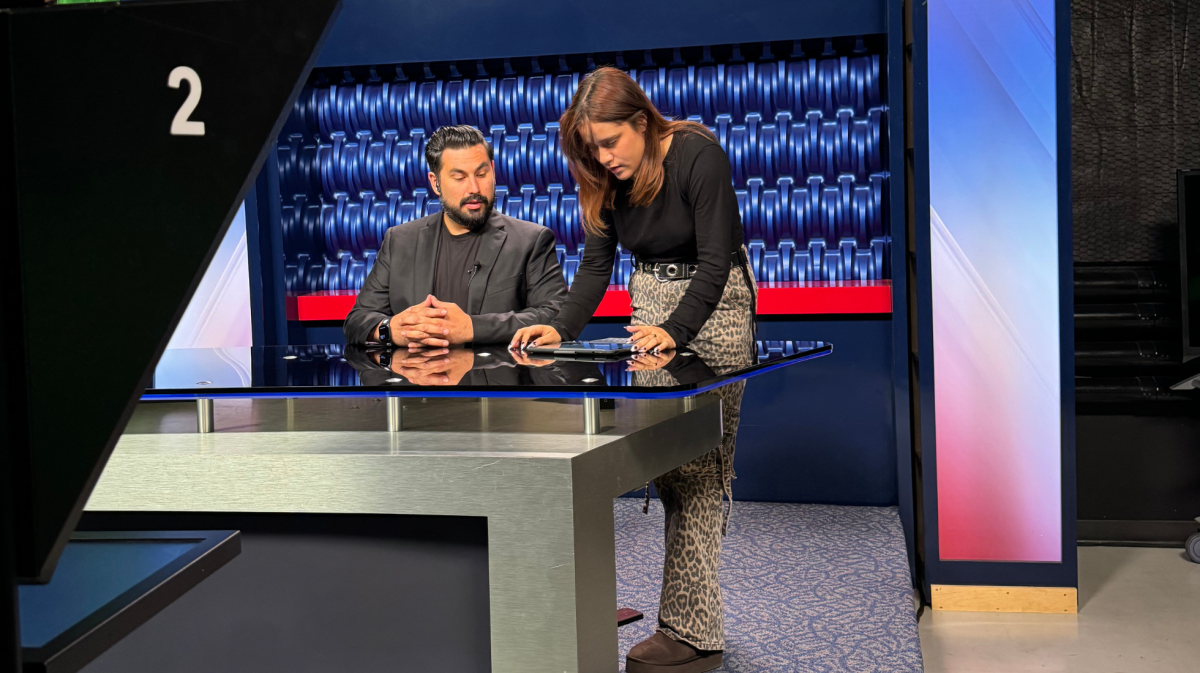In response to recent restrictions on Palestinian-solidarity expressions at San Diego City and Mesa colleges, a group of faculty introduced a resolution at the Feb. 12 City College Academic Senate meeting, urging the San Diego Community College District to reassert its policy of protecting academic freedom and free speech.
The measure was prompted by two recent events, one in which pro-Palestine signs were posted on a City College MS Building window and the other a Mesa College teach-in aimed at expressing solidarity with the Palestinian people.
Both faced external and internal opposition, respectively, which ultimately led to administrative intervention.
The incidents involving City College, Mesa College and SDCCD come as a national debate ensues surrounding the censorship of groups on college campuses and other institutions that criticize the Israeli state’s policies in the midst of what authorities on the subject consider to be an unfolding genocide in Gaza.
The nature of the intervention at City College comes amid claims of a growing climate of antisemitism worldwide by Jewish and pro-Israel groups and their efforts to combat it.
In December, the social media trolling account Stop Antisemitism tagged the SDCCD Twitter account citing five student-created posters expressing solidarity with Palestine that were placed on an MS Building window facing public view.
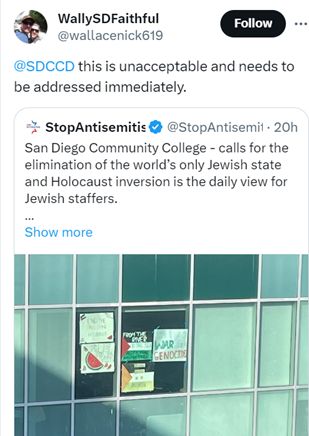
The signs had messages referencing the plight of Palestinians in Gaza that included, “Staying silent is a privilege,” “It’s not a war, it’s a genocide” and “End the Palestine Holocaust.”
According to Chicano/a Studies Professor America Martinez, in whose classroom the signs were posted, her students were inspired to propose the class project after a City College teach-in they attended in October provided context to the origins of the occupation of Palestine.
“As a professor, supporting the ways in which (the students) put into action what they learn is part of our pedagogy,” Martinez said.
Second-year performing arts student Liliana Diaz, a pupil of Martinez who participated in the project, said the class intended to create something inspirational that reflected what they learned from the teach-in.
“We just put our own creative spin and we all put posters on the windows,” Diaz said. “It was supposed to be a good thing but then we got backlash.”
The issue of how to deal with the signs reached SDCCD Chancellor Greg Smith and the district’s legal counsel at the behest of City College President Ricky Shabazz, according to several sources.
One sign in particular, which read “From the river to the sea, Palestine will be free,” became the focus of the district’s strategy to deal with public pressure that came in the form of emails and social media commentary, according to several sources.
According to Martinez, after Dean of the School of Behavioral and Social Sciences Masahiro Omae “strongly” requested on behalf of the district she take the posters down, City College President Ricky Shabazz and Vice President of Instruction Matilda Chavez directly approached her citing safety concerns as a rationale for the removal of the signs.
In each attempt, Martinez opposed what she considered efforts to censor her students’ work.
After the three administrators met with Martinez, Omae was instructed by the district on Dec. 13 to take down the “river” poster for being in violation of the district’s anti-discrimination policy.
City Times reached out to each administrator to verify the events and was directed to the district for comment.
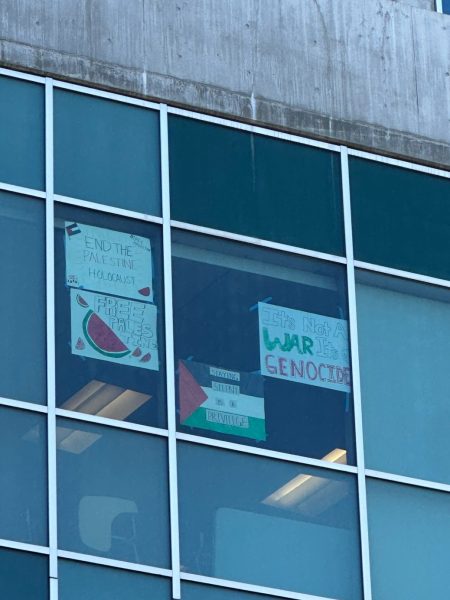
In a zoom interview with City Times, SDCCD Chancellor Greg Smith confirmed the district determined under Board Policy 3410 on nondiscrimination that the slogan could be interpreted by a “reasonable” person of Jewish identity or religious identification as a call for violence.
The district’s reason for singling out the poster and taking it down didn’t sit well with Diaz, who contrasted the message’s intent of empowerment with the reality Gazans are currently experiencing.
“That’s a crazy interpretation because that’s supposed to be a powerful saying … that the people of Palestine have hope,” Diaz said. “It’s just embarrassing because they choose to have a closed mind. This is more than something just to be petty over. Like, people are literally dying.”
Martinez said the particular slogan has also been cited by groups like Jewish Voice for Peace as a call where Palestinians “can live with full freedom and dignity, and also to not live under occupation and colonization.”
The Academic Senate resolution cites several Jewish sources to push back against the narrative that conflates criticisms of Israel with antisemitism.
Among those sources, the resolution cites The Jerusalem Declaration, a document developed by legal and international scholars in antisemitism-related studies, which include Jewish, Holocaust and Israel studies.
The declaration, providing an outline it claims will help strengthen the fight against antisemitism and create a space for a debate about the future of Israel/Palestine, specifies that “criticizing or opposing Zionism as a form of nationalism, or arguing for a variety of constitutional arrangements for Jews and Palestinians in the area between the Jordan River and the Mediterranean,” does not constitute antisemitism on its face.
In presenting the resolution, Academic Senate President-elect Mona Alsoraimi-Espiritu, who co-drafted it, also pointed to the recent interference of a related teach-in at Mesa College as a reason to seek the district’s support in protecting academic freedom.
The canceled Feb. 12 teach-in was intended to feature a discussion on Palestine solidarity from the lens of the Asian-Pacific Islander experience with European settler colonialism, according to multiple sources close to the situation who requested not to use their names due to concerns over their ongoing employment status.
According to documents obtained by City Times, the presentation was abruptly put on hold by a program director after an email was sent from a Mesa faculty member concerned about the manner in which the event was presented in promotional materials and about a featured speaker for the event.
The concerned faculty member declined to be interviewed by City Times about the matter.
A source close to the situation told City Times one of Mesa College’s vice presidents stepped in to mediate the organizing of any future Palestine-related events with the program director to make sure Israel-sympathetic voices were included.
City Times was unable to confirm which vice president was involved after requests to confirm were not responded to.
Smith highlighted the priority of providing a safe environment for all the district’s students and personnel in establishing the parameters for decision-making on free speech on its campuses.
“And I don’t think that this is by any means settled across the country or for us socially,’ Smith said.
City College’s Academic Senate will vote on the resolution at its Mar. 4 meeting, which takes place from 2:30-4:30 p.m. at MS-140.


